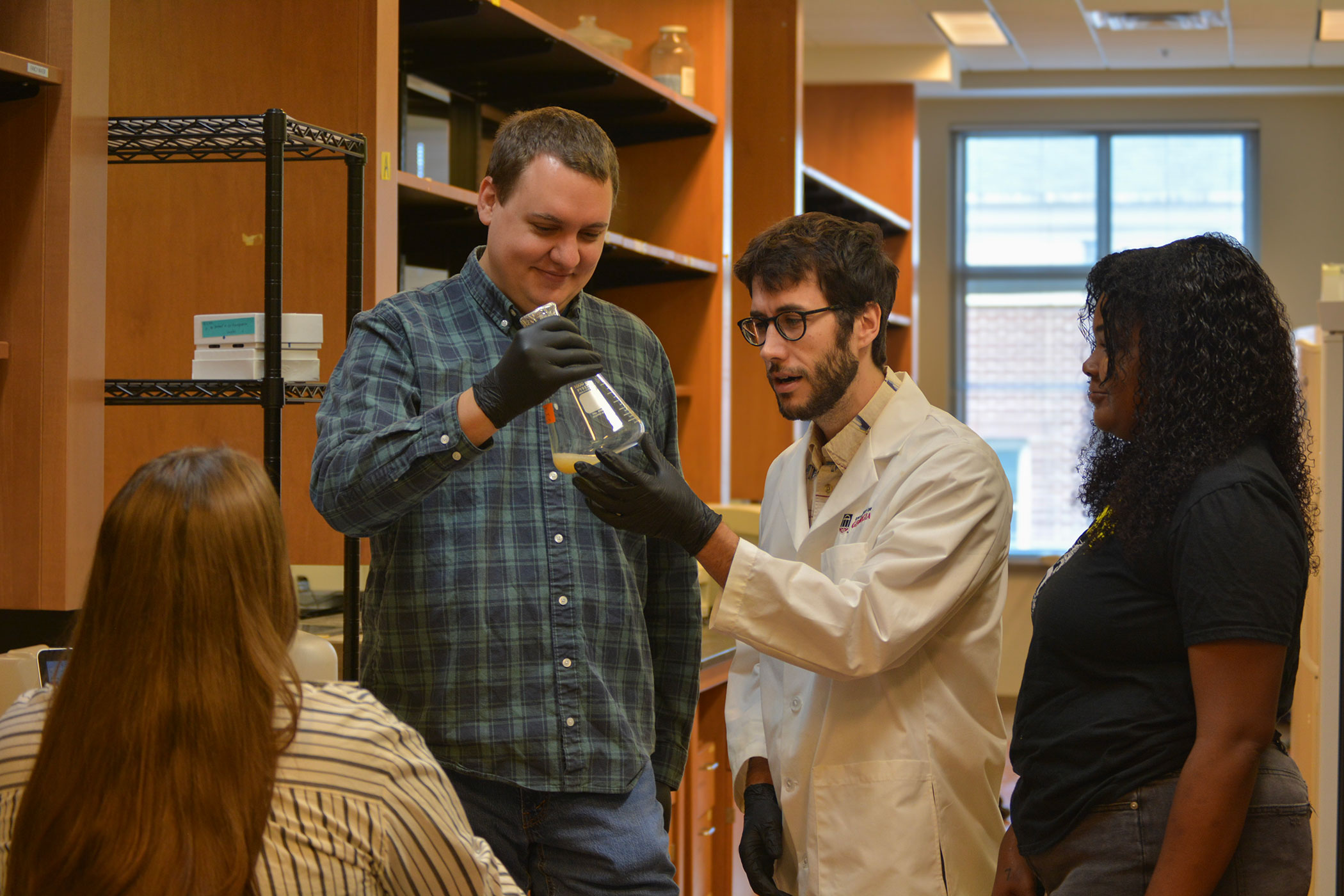Fungal pathogen expert Blake Billmyre recently was awarded a $2.2 million New Innovator Award from the National Institutes of Health.
An assistant professor in the University of Georgia College of Pharmacy and College of Veterinary Medicine, Billmyre will use the grant to investigate how one rare type of fungus has evolved over time to tolerate heat, infect human hosts and develop resistance to drugs.
Cryptococcus is a fungus naturally found in the environment, and until relatively recently, it was considered harmless to people. But for people with compromised immune systems, such as those with HIV/AIDS, diabetes or cancer, breathing in cryptococcus spores can be deadly.

“Compared to bacteria and viruses, we don’t know a lot about fungi,” Billmyre said. “Before the HIV/AIDS epidemic of the 1980s and ’90s, scientists didn’t focus much on fungal infections because of how rarely they occurred in patients.”
Adapting to warmer climate key to fungi evolution
Now named one of the World Health Organization’s critical fungal threats to human health, cryptococcus kills more than 100,000 people each year.
“What’s especially foreboding about cryptococcus species is that they weren’t always dangerous to humans. About 100 million years ago, a genetic change allowed them to, for the first time, survive and grow at warmer temperatures, such as those found in the human body,” said Billmyre. “Now that the planet is warming, current models suggest that other fungi might similarly evolve to have the ability to grow in the warm bodies of humans — a dangerous prospect.
“With this kind of evolutionary pressure on fungi, we could soon face completely novel diseases that the human body isn’t used to fighting.”
Research may help identify treatment targets for fungus
Billmyre’s lab will focus on determining what led to cryptococcus’ ability to survive at higher temperatures by identifying the genes required for this evolution.
That information may help researchers determine pathways for drugs targeting cryptococcus.
Billmyre and his team also are exploring the fungi’s evolving resistance to current drug regimens. Drug-resistant strains of cryptococcus are popping up within the warm sub-Saharan region of Africa, leading researchers to question of how some of these pathogenic fungi have become more resistant than others.
“Our research will guide us toward a deeper understanding of how to combat drug resistance that will allow us to better treat patients right off the bat,” Billmyre said. “This can completely reshape future treatment of not just cryptococcus but also other fungal infections.”


